Healthcare mobile app development is witnessing an unparalleled surge, reshaping the medical industry and offering opportunities to businesses. In 2024, approximately 43% of the US population used health apps. This rapid adoption highlights the global shift towards digital health solutions.
According to Grand View Research, the global healthcare mobile application market was valued at just $17.92 billion in 2019. Due to tremendous growth during the pandemic, it’s projected to skyrocket and reach $348.98 billion by 2027.
Seeing this growth, businesses aspire to launch their own healthcare mobile apps and meet the changing demands of consumers. To build a future-ready app, businesses can’t ignore the top healthcare mobile app development trends because they are shaping the industry.
So, if you want to skyrocket your business growth, staying ahead of these healthcare mobile app development trends is necessary. This blog dives deep into these trends along with the advantages that businesses can take from them. So, let’s get started:
Table of Contents
Top Healthcare Mobile App Development Trends For 2025
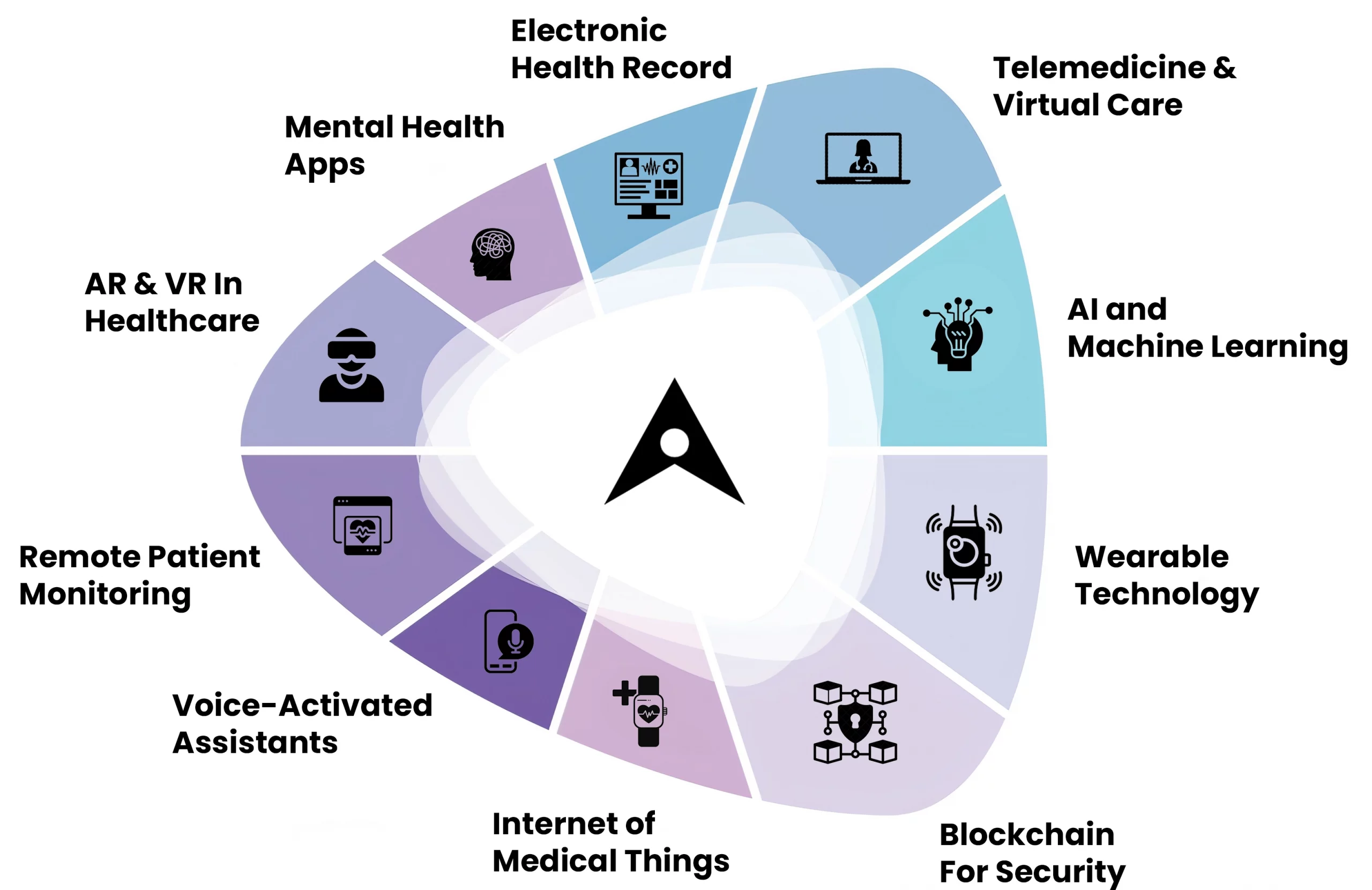
Healthcare apps have become an important part of digital transformation in the industry. According to the market reports, the health app market app is expected to grow with a CAGR of 11.7% from 2025 to 2034. (Source: Fortune Business Insights)
The growth of these apps has increased after the integration of advanced technologies into healthcare apps. Artificial intelligence, machine learning, and the Internet of Things (IoT) are playing a major role in changing the healthcare landscape by improving every healthcare mobile app. Several healthcare mobile app development trends should be explored to stay ahead in this competitive landscape. Let’s take a look at the top trends reshaping the future of healthcare.
1. Telemedicine and Virtual HealthCare
After the COVID-19 pandemic, telemedicine and virtual healthcare have become an important part of modern healthcare. These services allow patients to consult with doctors remotely through video calls, phone calls, or messaging which eliminates the need for in-person or physical visits.
With video consultations, patients can get face-to-face interactions from home. Also, remote monitoring is also important for real-time health tracking using wearable devices. Along with them, digital prescriptions speed up the medication process and automated reminders eliminate the chances of missed appointments. All of these facilities come under telemedicine and virtual healthcare.
This is one of the popular healthcare mobile app development trends that is growing rapidly in the healthcare industry and businesses can save time and money after using it. After using this trend, businesses can avoid travel and streamline management with continuous remote monitoring. In addition to this, the low amount of in-person visits lowers infection chances, and results in better health of patients and healthcare workers. To leverage this trend, a partnership with a healthcare mobile app development company is important for businesses.
2. AI and Machine Learning in Healthcare Apps
Leveraging AI in healthcare app development can help businesses stay ahead of their competitors. AI and machine learning are playing a major role in reshaping the healthcare industry by providing advanced tools for diagnosis, treatment, and patient management.
These emerging technologies allow healthcare providers to give personalized care, reduce human errors, and improve decision-making. Along with them, AI-driven insights make it easy to manage chronic diseases and optimize treatment protocols.
In the future, we can see real-time health monitoring, personalized medicine, and AI-powered diagnostics to empower the industry. With the continuous evolution of AI & ML, healthcare business owners are looking to improve the quality of care.
3. Wearable Technology in Healthcare Apps
Many people wonder how is wearable technology shaping the future of healthcare industry. This technology is one of the most popular in healthcare mobile app development. With the capability of integrating wearable technology, healthcare mobile apps can provide a seamless user experience. With the use of wearable, health monitoring and data collection could be easy because it includes fitness trackers, smartwatches, and health monitoring gadgets.
Their unique features such as heart rate monitoring, sleep tracking, and activity logging make them revolutionary. These devices help healthcare providers by providing valuable data. This data helps in improving disease management and patient care.
Advanced wearables include features for monitoring blood pressure, glucose levels, and oxygen saturation which helps healthcare providers to a great extent. In the future, wearables can be able to offer more advanced health monitoring. So, businesses should consider wearable technology during app development for healthcare.
4. Blockchain For Data Security
Blockchain is revolutionizing healthcare because it provides a secure and transparent way to handle patient data. With its decentralized nature, Blockchain ensures data integrity, prevents unknown access, and improves patient privacy. It helps maintain secure health records and ensure data safety.
Businesses that leverage these trends can surely provide high-end data safety for patients. This will help keep the data safe, enable seamless exchange, and automate processes like insurance claims and consent management.
Read Also : Top Healthcare App Development Companies in USA
5. Internet of Medical Things (IoMT)
IoT can be a game-changing step for your healthcare mobile app development project and that’s why a new term IoMT came to the fore. The Internet of Medical Things refers to the network of connected medical devices that collect, receive, and analyze patient health data. These devices are reshaping the future of remote monitoring, hospital management, and patient care.
With IoMT, smartwatches, and fitness bands can be able to monitor heart rate, sleep patterns, and activity levels. Smart inhalers & insulin pens will also help patients track their medication usage. Also, IoMT devices can help track hospital equipment, manage patient beds, and improve efficiency.
Read Also : How IoT Can Be a Game-Changing Step For Your Healthcare App Development?
6. Voice-Activated Health Assistants
Voice-activated health assistants are also revolutionizing healthcare application development in 2025. They are providing hands-free interaction with medical information and services. These AI-powered assistants are quite helpful for patients in managing medications, scheduling appointments, and accessing health information by giving a voice command.
Businesses need to leverage advanced healthcare mobile app development services to use voice-activated assistants in their apps. This trend helps in increasing patient engagement by offering 24/7 support, accessibility, and ease of use for disabled people. With the integration of EHR and natural language processing, this trend can shape the healthcare industry to a great extent.
7. Remote Patient Monitoring (RPM)
Remote patient monitoring (RPM) is one of the top trends in healthcare mobile app development, revolutionizing the use of digital technology to collect data from patients in a unique way. This data includes vital signs, weight, and glucose levels and it gets transmitted to healthcare providers for analysis.
RPM helps improve chronic disease management, reduce hospital visits, and enhance patient engagement because it allows continuous monitoring and timely interventions. In the future, businesses can have the opportunity to initiate integration with AI for predictive analysis to improve patient outcomes.
8. AR & VR In Healthcare
Augmented Reality (AR) and Virtual Reality (VR) are reshaping patient care, medical training, and mental health therapy. They are playing a major role in revolutionizing healthcare mobile app development services.
These technologies provide immersive experiences that improve learning, diagnosis, and treatment. However, healthcare app developers need to be top-skilled to integrate these technologies into the healthcare app.
With the use of VR in healthcare mobile apps, students can be able to practice surgeries in a risk-free environment. It can also be used for pain management & therapy such as PTSD, anxiety, and phobia treatments. Augmented Reality can help in diagnostics by overlaying digital information on real-world images. It will help doctors in analyzing scans and X-rays.
Read Also: Healthcare App Development: Benefits, Features and Costs
9. Mental Health Apps
Mental health is a very big concern for everyone and it needs attention & treatment if anything happens to that. These apps have a huge role in healthcare mobile application development because they can help businesses achieve success in this competitive landscape. Mental health apps offer virtual therapy sessions, guided meditations, mood tracking, and stress management. It allows users to manage their mental well-being anytime, anywhere.
Mental health mobile apps and healthcare industry are growing rapidly which is increasing the consideration regarding these apps during healthcare mobile app development. They provide anonymity and convenience which encourage users to seek help. With AI integration, these applications will offer tailored treatment recommendations and real-time support. It improves mental health outcomes and provides continuous care.
Read Also : Mental Healthcare App Development Guide
10. Electronic Health Record Systems (EHR)
Electronic Health Record systems are helpful in digitizing patient medical histories which makes data accessible to healthcare providers. EHRs are important to consider during healthcare mobile app development because they improve the accuracy and efficiency of patient care by ensuring that health information is updated and readily available.
A lot of mobile apps in the health industry should include EHRs to help patients & healthcare providers. They improve coordination among providers, reduce errors, and streamline administrative tasks.
In the future, EHRs will include greater opportunities. The AI-powered data analytics and improved security features are important to ensure comprehensive and secure patient care management.
These trends are reshaping the future of healthcare mobile app development. Businesses need to stay ahead of these trends to transform future-proof healthcare app ideas into successful apps. Now, we will explore:
How Businesses Can Take Advantage of Healthcare Mobile App Development Trends?
After the digitization of the healthcare industry, businesses can leverage healthcare mobile app development trends to expand reach, improve patient care, and optimize operations. So, let’s take a look at all the advantages:
1. Expanding Market Reach
Healthcare mobile apps allow businesses to reach a wider audience beyond traditional physical locations. By embracing these latest trends, businesses can offer remote healthcare solutions to patients in underserved regions. For example, healthcare providers can partner with healthcare mobile app developers to build niche platforms focusing on specific health conditions, such as mental wellness or chronic disease management.
2. Improving Patient Management and Monitoring
Engagement is important in building a successful healthcare business. Health app development trends provide advanced features such as personalized health tracking, appointment scheduling, and medication reminders to make healthcare services convenient.
For example, health and wellness businesses can choose medical mobile application development to build AI-powered healthcare mobile apps. By providing advanced features due to emerging healthcare mobile app development trends, businesses can engage more users.
3. Streamlining Operations And Saving Money
Healthcare businesses can save money on operational costs by automating routine tasks. These trends can provide them with AI-powered chatbots, seamless appointment scheduling, and EHR systems to reduce administrative burdens and minimize human errors.
After leveraging these trends, businesses can integrate professional healthcare apps for digital patient check-ins, billing automation, and prescription tracking. It reduces paperwork and saves time. So, healthcare mobile app development trends can help businesses streamline operations and save money.
4. Collaboration Opportunities With Other Businesses
Businesses can utilize these top healthcare mobile app development trends through strategic partnerships as well. They need to collaborate with hospitals, clinics, and insurance providers to build tailored digital health solutions.
For instance, insurance companies can integrate health tracking applications into their policies and offer discounts for users who maintain a healthy lifestyle. Remote patient monitoring can be helpful for hospitals to reduce readmissions. To open collaborative opportunities, you need to build a customized application which requires a partnership with a custom app development company.
5. Entering The Growing Healthcare Market
The rise of online healthcare has opened huge business opportunities. Entrepreneurs and healthcare brands need to build mobile apps that connect users with doctors and take care of their health. The above-mentioned healthcare trends are giving birth to advanced healthcare applications.
By embracing these latest technologies, businesses can create seamless customer experiences and offer advanced services. They need to partner with a healthcare application development company to stay ahead and achieve success.
Final Thoughts
The healthcare mobile app development trends are shaping the future of the industry because they are enhancing patient care and improving healthcare delivery. Businesses need to stay ahead of these trends to achieve success in this competitive landscape. However, businesses need to partner with a top-rated mobile app development company to build an advanced healthcare app powered by the latest trends.
At RipenApps, we have individuals with extensive experience in building mobile applications for the health industry. Our expertise in these latest technologies helps us craft secure and top-notch healthcare apps.
FAQs
Q1: What is the impact of healthcare trends?
Healthcare trends are impacting the healthcare industry by providing more personalized, preventative, and accessible care. They also improve diagnosis, optimize resource allocation, and provide better patient engagement.
Q2: How much does it cost to develop a healthcare app?
The healthcare app development cost can vary depending on the complexity of the app. A basic app can cost from $20,000 to $60,000 with basic features. A moderate complex can range from $60,000 to $100,000 and building an advanced healthcare mobile app can cost up to $100,00 to $200,000 or more, including advanced features.
Q3:What are the latest trends in healthcare?
Telemedicine, blockchain, Internet of Medical Things, voice-activated assistants, remote patient monitoring, AR & VR, mental health apps, etc are the latest trends in healthcare.
Q4: How is AI disrupting healthcare services?
AI is disrupting the industry by improving diagnostic accuracy, enabling personalized treatment, streamlining administrative tasks, and automating routine tasks. Overall, AI is making healthcare preventive, proactive, and efficient.

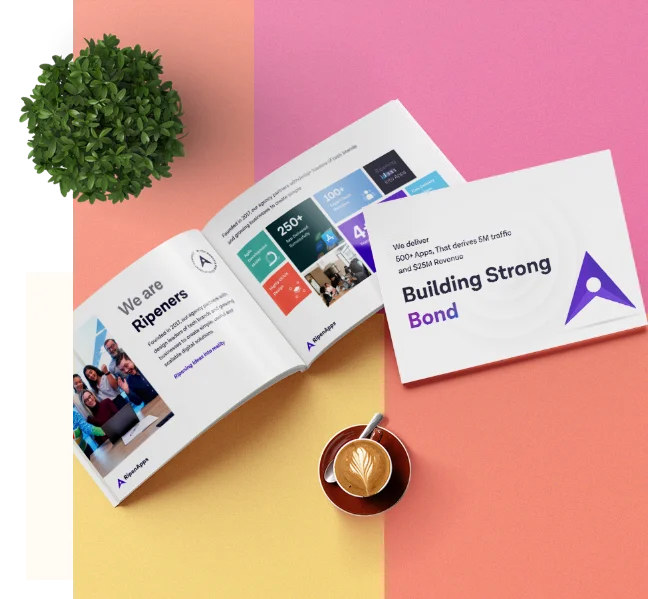
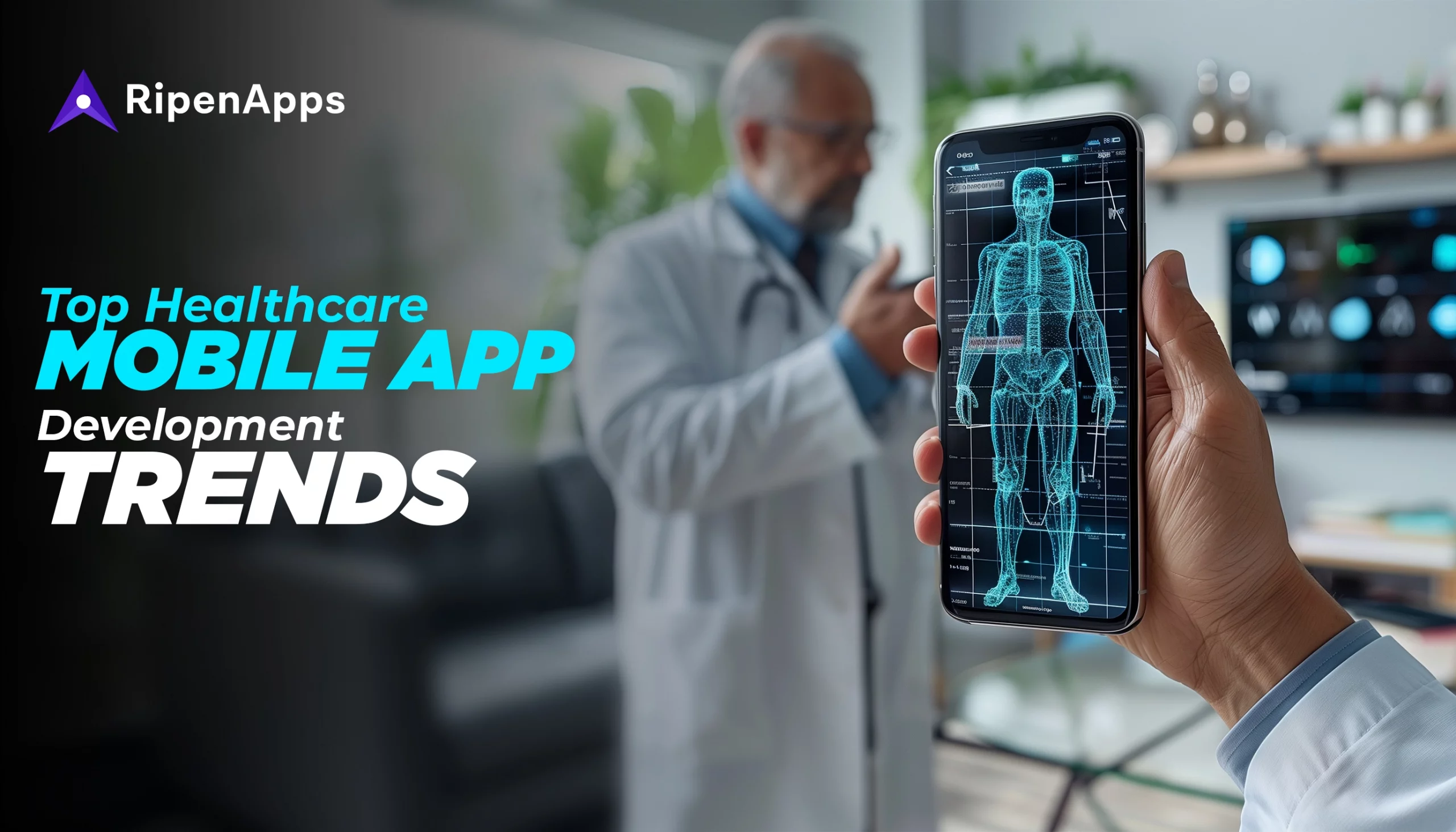




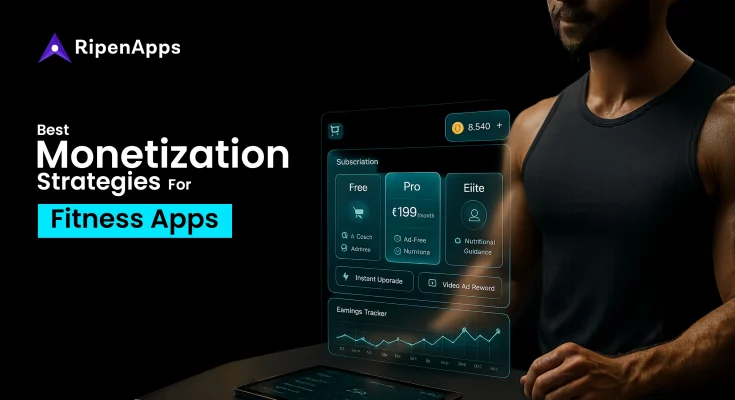
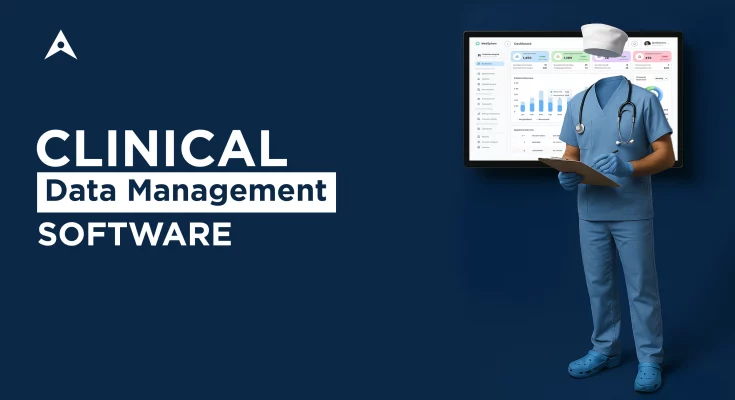

 India
India USA
USA Australia
Australia Canada
Canada UK
UK UAE
UAE
